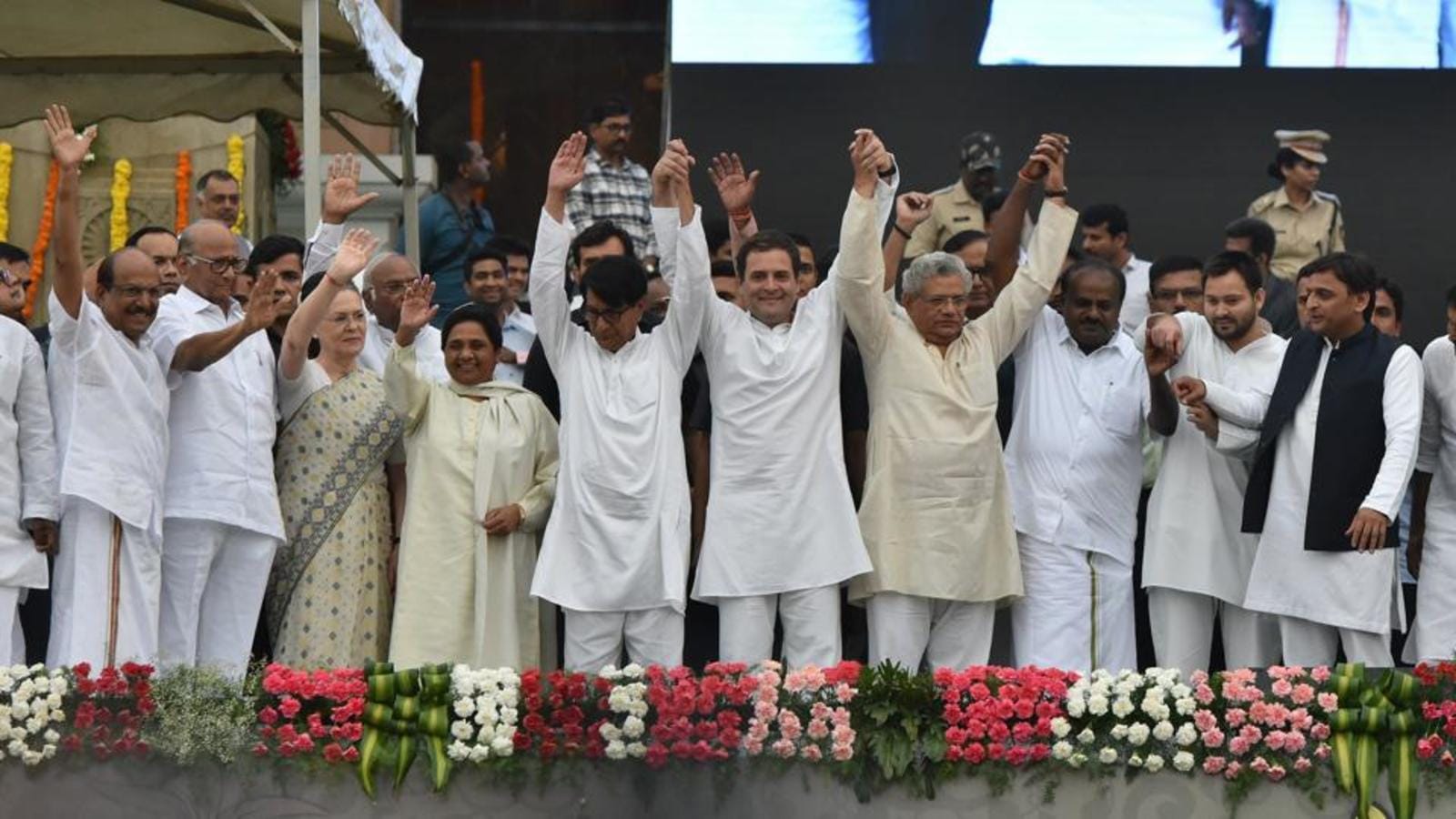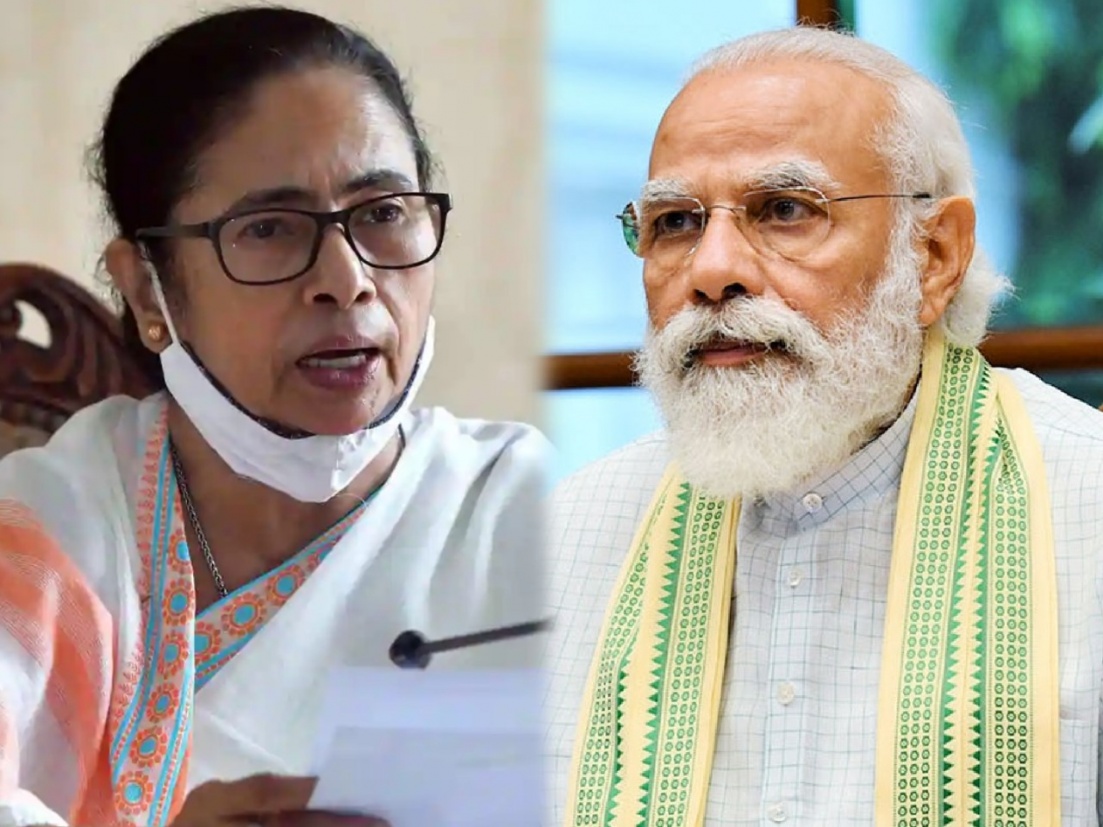Lack of strong opposition is turning the world’s largest democracy into a single-party dictatorship like China and North Korea for 2022
India turning into totalitarian regime under Mr. Modi

Lack of strong opposition is turning the world’s largest democracy into a single-party dictatorship like China and North Korea
With a population close to 1.4 billion, India is celebrated as the world’s largest democracy. However, with the current political scenario, can India be rightly called a true democracy? Ever since the Modi Government assumed office in the summer of 2014, India’s position in global ranking in the Democracy Index has been sliding southwards.
This is attributed mainly to the steady erosion of civil liberties with radical fringe elements of the Hindutva brigade, the cow vigilantes, unleashing mayhem on religious minorities brazenly in broad daylight.
Along with this, an attempt was made to introduce religion as a basis of determining citizenship through CAA, which goes against the secular principles laid down in the constitution. All these incidents have put a question mark on India’s democratic credentials.
Political analysts have attributed this autocratic behavior of the present political dispensation to the lack of a strong opposition in the country.
What makes democracy attractive as well as viable and functional is the fact that the voter can always oust the incumbent government and bring in another political party through a free and fair election. But how helpful is a free and fair election when the voter does not have a choice?
Democracy is a cherished form of governance across modern nations because it provides people with the principle of rule of law, which ensures freedom and equality to all. This is ensured by the presence of checks and balances that provide for an opportunity to the people to control their leaders and keep them in check.
In a modern democracy, these checks, apart from the judiciary, come in form of opposition parties. A strong opposition is a prerequisite for a healthy democracy in any country. It is for this reason that some might claim that India currently is not a healthy democracy.
India is faced with the grim reality of no choice when it comes to replacing the government. A strong opposition ensures that the government of the day does not indulge in committing excesses by abusing powers vested in it.
Because the opposition today is in a state of complete disarray, the Modi government has started exhibiting autocratic tendencies on all matters of governance. Whether it is the passing of farm bills in parliament or abrogating article 370 or gross human rights violations, the government has behaved in a high-handed fashion with absolute contempt for the opposition or any form of dissent and coming down heavily on persons who dare to speak up.
They have used the state apparatus to crush and harass anybody who has shown some spine to stand up to the government. The fundamental right of freedom of speech and expression has been usurped by the sycophants of the government, and all dissenters are labelled anti-national and put behind bars at the slightest provocation.
Amidst all this unrest, the opposition seems clueless and can do nothing except stand by as mute spectators. This pusillanimous behavior of the opposition has reduced the quality of democracy in India, and the international community has started referring to India as an elected autocracy. This precarious condition needs deeper introspection and investigation.

The lack of an effective and strong opposition has been a characteristic feature of Indian democracy and is not a new phenomena that can be attributed to the rise of Narendra Modi. Since independence, India had the good fortune of having Pandit Jawaharlal Nehru as the first Prime Minister, but there was no one in the opposition benches who could defeat him in the elections.
This invincibility created arrogance and a sense of infallibility in him, because of which, he took many wrong decisions which cost India dearly as a country. Despite the foreign policy blunder of taking the Kashmir issue to the United Nations and the military debacle of 1962 at the hands of China, the INC was re-elected in the subsequent election because there was no viable alternative in the form of a strong opposition. The situation was no different with Indira Gandhi.
She became highly autocratic and went to the extent of imposing the Emergency in the country. Even though she and her party, Cong (I) was completely routed in the elections held after the withdrawal of the Emergency, the opposition could not put up a united face and disintegrated within three years without completing its tenure of five years. As a result, Indira Gandhi came back to power in the year 1980.
Rajiv Gandhi, who followed her as Prime Minister in the year 1985, had an overwhelming majority in the Lok Sabha, and the opposition as usual was in tatters. The situation is no different now except that the roles have been reversed. Now the BJP is the dominant party and the INC is in tatters. It seems God has been very fair in that he has extended the same privilege to the BJP that he bestowed on the Congress—that of having no strong opposition.

The opposition in India is almost absent, and this can be confirmed by observing the situation of the second-largest party in India, the Indian National Congress. Although the Grand Old Party performed slightly better in the 2019 polls by obtaining 52 seats in the 543-member Lok Sabha, India’s lower house of parliament, it was no match to the BJP’s 300 plus seat.
The disgrace was further compounded as the then president of the party, Rahul Gandhi, failed to win his traditional constituency, Amethi, which was considered to be a Congress bastion for years as it had been successively and successfully retained by the Gandhi family.
The Congress’s failure can be attributed to complete lack of voter connect, inadequate understanding of the ground reality, and overall paralyzed decision-making abilities.
Rahul Gandhi, the face of the Congress party, is seen to be incoherent in his articulation of issues and lacking attention and understanding of issues that concern the country. The Gandhi family leadership has shown a deeply flawed sense of entitlement and misplaced priorities.
This has ensured that the Congress is not even considered a legitimate opposition in many of the states now. There are many questions emerging from within the party questioning their leaders, and there have been multiple instances of young leaders trying to escape from the party before it is too late.
The only party other than BJP which has a pan-India presence is the INC (Indian National Congress) but because of slack leadership at the helm and dilution in its ideology it has lost its appeal among the electorate and is unable to reach double digits as far seats in the parliament are concerned.

The second factor that adds to the failure of opposition is the decline of regional parties. Since 1989, regional parties have often played the role of kingmaker after general elections.
This scenario changed after 2014 when Narendra Modi got elected by crossing the halfway mark on his own. Since then whether it is the TDP in Andhra Pradesh, JDS in Karnataka, NCP or Shiv Sena in Maharashtra, SP or BSP in Uttar Pradesh or even TMC in West Bengal—they are all experiencing a secular decline in their popularity.
No regional party can take on the BJP single-handedly as their influence is limited to their respective state boundaries and hence unable to challenge the hegemony of BJP in the rest of the country. The opposition is very fractured both in terms of ideology, and their perspective for the country.
The saving grace has been the TMC win in 2021 Bengal assembly elections though BJP did exceptionally well in the parliamentary election of 2019. The BJP has started making inroads in many of these states leaving the regional parties vulnerable.
This constant decline in the opposition also boosts the chances of the BJP winning state elections. All that the Modi-Shah duo have to do is to remind the voter of the abysmal standards of the alternative and ask them to pick the better of the two.
This has created the sense of TINA—there is no alternative. Be it a multi-party or a two-party system, a strong opposition is an integral part of the democracy. No leader or party should feel that they can rule as long as possible by projecting themselves as the lesser evil.
This means the voter do not legitimately have a choice in choosing their candidates and thus India’s democracy is indeed in danger.

This has allowed the BJP under Mr. Modi a free rein to administer the country as per their whims and fancies. The country has been paying a heavy price for this. The people had to undergo financial hardship because of an ill-thought demonetization implemented by the Modi government and an equally ill-structured GST which hit the small and medium enterprises adversely.
There has been a brazen display of crony capitalism by businessmen who are considered close to the government resulting in already existing economic inequality growing further. There was monumental mismanagement during the Corona pandemic ranging from shortage of oxygen cylinders to lack of enough ICU beds in hospitals.
There was colossal recklessness in timely ordering of vaccines because of which so many lives were lost as the Corona infection got exacerbated due to people not being vaccinated. All this led to significant disenchantment with the government, but because the opposition is perceived to be incapable and indolent, people feel there is no alternative to the present dispensation.
Another issue which further highlighted the need for a strong and credible opposition is the agitation by the farmers against the farm laws promulgated by the central government by enacting ordinances bypassing any scrutiny by parliament and infringing upon the rights of the state governments as agriculture is a state subject.
Though ultimately Mr. Modi had to bow down to the resilience and determination of the farmers and repeal the farm law, but it came at a huge cost. More than 700 farmers lost their lives during the protest.
This can very well be termed as culpable homicide, yet there is no accountability. Another big problem staring the country is huge unemployment, but the opposition is unable to come up with any credible solution and again, people feel there is no alternative.
India, which took great pride in calling itself the largest democracy, is increasingly looking and behaving like a totalitarian regime under the present dispensation, very much like China or North Korea.
The present state of the opposition seems to ensure another smooth landing of the Modi government in the next elections scheduled to be held in 2024.
The question bubbling in everybody’s mind is whether the opposition will be able to throw up a viable alternative to the present political dispensation as a strong opposition is imperative for democracy to remain healthy and functional.
edited and proofread by nikita sharma




